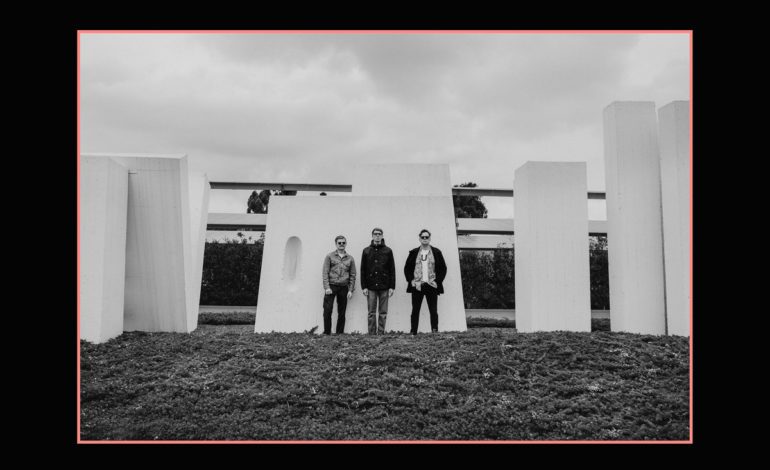

Lo-fi garage surf crosses the ocean
Tijuana Panthers return to the front page of independent rock with their newest album, Carpet Denim. The trio, comprised of drummer Phil Shaheen, guitarist Chad Watchel and bassist Daniel Michicoff once again share their often dismissive leerings and personal tales through the medium of modern surf rock. Not content to churn out a rehashing of 2015’s Poster, the band further refines their sounds and lyrical approach. They have not abandoned their lo-fi garage attitude, but they take another sonic step in cleaning up their recording technique. Purists may lament this trajectory, but overall the production remains rather sparse and the band still relies on catchy tunes instead of leaning on studio wizardry.
Watchel dives into the retro feel of the 1950s California surf scene in reverb-soaked guitar tones and the scales upon which he chooses to improvise. Carpet Denim creates a soundstage that feels a bit more spacious than their previous album by moving slightly away from their punk sensibilities and embracing Britain’s Madchester sound.
“Path of Totality” opens the album with a vocalized chorus over individually picked guitar notes, creating a sense of jangling tension that is heightened later in the track as lead and backing vocals jockey for the listeners attention. They downshift to mellower moods on the following two tracks. If “First Date” feels at home in Northern England of the ‘80s, then “710” was born decades ago in Southern California. “Little Pamplemousse” turns up the tempo and punk snarl, earning the title of most fun on the album.
Michicoff’s thwacky bass features prominently on the tandem of “Generation Singular” and “TV People.” The opening rhythms add yet another facet to the album with the former track ending in a chorus of “Information communication/ generation singular” that is more chanted than sung, paying a little homage to The Clash.
Like the preceding tracks, the band carefully selects their straightforward and intimate lyrics throughout the album. Most of the song topics fall into one of two categories: societal musings or personal reflections. They handle both themes well, but with a title like Carpet Denim, it is not surprising that the band’s overall view of modern life is not very complimentary. Their snide verses and allusions cut sharply and are anything but subtle.
The final number, “Friday Night Baby,” deviates from the other thirteen songs with a mix that is drastically different. Perhaps in an effort to assuage their fanbase, they present the track completely unadorned, right out of the garage—false start included. It is the most lo-fi and low key offering by far, and the main guitar theme and chord progressions can even be called pretty.
Tijuana Panthers continue to hone their craft. The band stays true to their SoCal roots, but also shows courage and ambition by turning down the reverb slightly and experimenting with sounds and elements more often encountered in a bygone British era. Carpet Denim gets better with subsequent listenings. The songs are short, varied and lively, likely pleasing fans and leaving them anticipating the next album.
